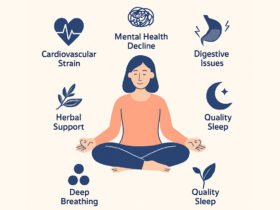Breast cancer is one of the most common forms of cancer among women, affecting millions of women worldwide. In this article, we will explore the disease, its causes, risk factors, symptoms, and prevention strategies to help you stay informed and protected.
Understanding Breast Cancer
Breast cancer is a disease that develops when abnormal cells in the breast grow out of control, forming a tumor. The tumor can then spread to nearby tissues and organs, and even to other parts of the body through the lymph nodes or bloodstream.
The exact causes of breast cancer are not known, but research suggests that several factors may contribute to its development, including genetics, lifestyle choices, hormonal factors, and environmental exposures.
Risk Factors for Breast Cancer
Certain factors may increase a woman’s risk of developing breast cancer, including:
- Gender: Women are more likely to develop breast cancer than men.
- Age: The risk of breast cancer increases as women age, with most cases occurring in women over 50.
- Genetics: Women with a family history of breast cancer, or who carry certain genetic mutations, may have a higher risk of developing the disease.
- Hormonal factors: Women who have early menstrual periods, late menopause, or who have never given birth may have a higher risk of breast cancer.
- Lifestyle choices: Smoking, alcohol consumption, a sedentary lifestyle, and a diet high in saturated fats may increase the risk of breast cancer.
Symptoms of Breast Cancer
Breast cancer may not cause symptoms in its early stages, which is why regular screenings are so important. However, as the disease progresses, the following symptoms may occur:
- A lump or thickening in the breast or underarm
- Changes in breast size or shape
- Nipple discharge or inversion
- Skin changes, such as redness, dimpling, or puckering
- Pain or tenderness in the breast
If you experience any of these symptoms, it is essential to see your doctor right away.
Prevention Strategies for Breast Cancer
While there is no surefire way to prevent breast cancer, there are several steps you can take to reduce your risk:
- Get regular breast cancer screenings: Women over 50 should get a mammogram every two years to check for breast cancer.
- Know your family history: Women with a family history of breast cancer should discuss their risk with their doctor and may need to start screenings earlier.
- Maintain a healthy lifestyle: Eat a healthy diet, exercise regularly, maintain a healthy weight, and avoid smoking and excessive alcohol consumption.
- Breastfeed: Women who breastfeed their children may have a lower risk of breast cancer.
Conclusion
Breast cancer is a serious disease that affects millions of women worldwide. By understanding the risk factors, symptoms, and prevention strategies, women can take proactive steps to protect themselves and reduce their risk of developing the disease. Regular screenings, a healthy lifestyle, and early detection can make a significant difference in the prognosis and treatment of breast cancer. If you have concerns about breast cancer or have symptoms, be sure to speak with your doctor.











Leave a Reply